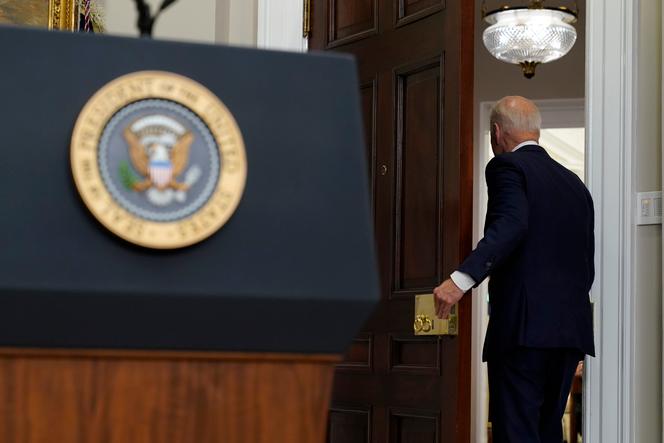


June 27: A catastrophic performance in the debate against Donald Trump
That evening, on the set of CNN, the president of the United States faltered live in front of millions of viewers. Just when he wanted to show the American people that his age, 81, was not an obstacle to a new four-year term, he was betrayed from the very first minutes by his muffled voice, his failing memory, labored arguments, and his inability to follow his train of thought.
July 5: Joe Biden maintains his candidacy
In the aftermath of the debate, the American media – in particular the New York Times – which had been rather discreet about his state of health until that point, urged Biden to withdraw from the presidential race. But the president, encouraged by the denial that prevailed among his entourage and by the embarrassment that dominated within the Democratic Party, maintained his candidacy. In an interview with ABC, he still considered himself "the most qualified" to beat Donald Trump.
July 6: Several major Hollywood donors suspend their funding
Many voices in the film industry, such as Ari Emanuel, a famous agent, and Reed Hastings, co-founder of Netflix, called on the American president to pass the torch to another Democratic candidate. "The lifeblood to a campaign is money, and maybe the only way . . . is if the money starts drying up..." said the former, a major Democratic donor whose brother Rahm was Barack Obama's chief of staff when he was in the White House.
July 8: Denials from the White House press secretary
That day, in the White House press briefing room, press secretary Karine Jean-Pierre repeatedly refused to answer questions about the president's health and the fact that a Parkinson's specialist had been seen eight times in eight months at the White House, between the summer of 2023 and the spring of 2024. "Has the president been treated for Parkinson's? No. Is he being treated for Parkinson's? No, he's not. Is he taking medication for Parkinson's? No."
July 10: Pressure from the Democratic camp
In an op-ed published in the New York Times, actor George Clooney, a fellow Democrat, called on Biden to throw in the towel. On the same day, Nancy Pelosi, the influential former speaker of the House of Representatives, advised the president to consider his decision carefully, even though he had repeatedly confirmed it. It was an intervention perceived as a call to revolt. In public, Senate Democratic leader Chuck Schumer insisted he was "for Joe." But the website Axios claimed that, privately, he had already hinted at the president's withdrawal.
July 11: Another Biden blunder
As he received Volodymyr Zelensky, the Ukrainian head of state, at the NATO summit in Washington, DC, Biden introduced him by saying, "Ladies and gentlemen, President Putin." This latest blunder, following several slips of the tongue, accentuated the uneasiness. Every public appearance by the president became a health check.
July 17: First breach in the president's inflexibility
Speaking to the television channel BET, Biden said he would re-evaluate his candidacy if he were diagnosed with a health problem. Asked what might prompt him to withdraw, the Democratic leader replied: "If I had some medical condition that emerged, if somebody – if doctors came to me and said you got this problem, that problem." This was the first time Biden had opened the door to the idea of abandoning his campaign.
July 17: Biden tests positive for Covid
Biden tested positive for Covid-19 during a campaign visit to Nevada. He left to isolate in his Delaware home, claiming to "feel good" and promising to resume campaigning the following week. But a growing number of elected Democrats were questioning his ability to campaign and win against Trump, who had emerged stronger from the July 13 assassination attempt on him.
July 21: Biden announces his withdrawal from the presidential race
The US president announced in a letter released on X that he would no longer be seeking the country's presidency on November 5. "It has been the greatest honor of my life to serve as your President. And while it has been my intention to seek reelection, I believe it is in the best interest of my party and the country for me to stand down and to focus solely on fulfilling my duties as President for the remainder of my term," he wrote. An unprecedented decision at this late stage in the election campaign.
Translation of an original article published in French on lemonde.fr; the publisher may only be liable for the French version.
